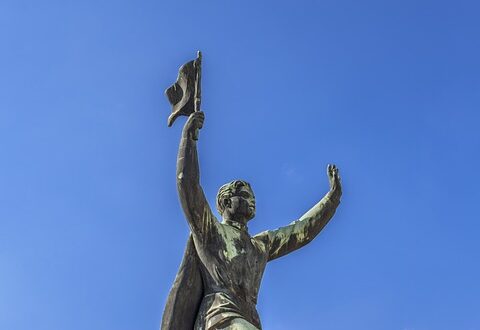The Top 10 Moments that Shaped Social History Forever
The Invention of the Printing Press by Johannes Gutenberg
The invention of the printing press by Johannes Gutenberg in the mid-15th century was a groundbreaking event that heralded a new age of spreading knowledge and ideas. It made it much easier to produce and distribute printed material, and it is no exaggeration to say that the printing press changed the world forever. It allowed for mass communication and the exchange of ideas, ultimately leading to the democratization of knowledge and the start of the Renaissance movement.
The Breakup of Segregation in the United States
The struggle for Civil Rights in the United States was hard-fought but ultimately successful, culminating in a series of landmark court cases in the 1960s that broke up the system of segregation and led to more services and opportunities for people of color. From the Montgomery bus boycott to the landmark Brown v. Board of Education case, African Americans worked tirelessly to break down the barriers of institutional racism that stood in their way.
The Women’s Suffrage Movement
The fight for women’s right to vote was a long and difficult battle, spanning a period of around 72 years from the first Women’s Rights Convention held in Seneca Falls in 1848 up to the ratification of Nineteenth Amendment on August 18, 1920. Women like Susan B. Anthony and Elizabeth Cady Stanton were passionate about fighting for their own rights and by leveraging various actions, women secured voting rights they rightly deserved as equal citizens, but it was not until the 20th century that these rights were recognized.
The Discovery of Penicillin
Thanks to Scottish doctor and researcher Alexander Fleming, who stumbled upon the phenomenon by accident, antibiotics changed the world in the 20th century. Penicillin was the first antibiotic to be discovered, heralding a revolution in medicine as bacterial infections could be cured much more easily than before. Medical history would inevitably have been severely compromised if it wasn’t for Fleming’s serendipitous discovery.
The Establishment of the World Wide Web
The computer smart Alec connected Britain’s research computing networks, which led to further scientists creating what became the beginnings of today’s internet. The World Wide Web was born in 1989 by Tim Berners-Lee and has revolutionized the way people communicate and conduct business. Communication is now nearly instantaneous, allowing for not only rapid decisions but also more worldwide cooperation between professionals in many diversified industries.
The Civil Rights Movements Across the World
Various instances of civil rights movements which were not limited to the United States but rather it evolved globally in different flairs led to social changes in many communities around the world. Movements like the freedom struggles of India led by Mahatma Gandhi, Nelson Mandela’s active resistance movement against apartheid in South Africa up to the Orange Revolution in Ukraine that igniting more democratic governance.
The Beatles from Liverpool
Among the most influential bands in the world, a group officially known as The Beatles from Liverpool had an immeasurable impact on the collective imagination. Their unique combination of haircuts, fashion sense, and musical style captivated audiences around the world in the early 1960s, coming as they did straight after the sadness of World War II.. Their Anti-establishment themes and the British invasion through their rock and roll music sparked a revolution, massively influencing every part of culture across the world.:
The Progressive-Era-Rights Movement in The United States
Progressivism led advocates to fight for workplace safety standards, secure food, housing, and basic rights for working-class families in the early 20th century revolutionized life for laborers. A shift began in US society, led by muckrakers and policymakers like Jane Addams pushing for significant reforms which evolved into the modern widespread social safety nets, marked with better immigration and excess assimilation policies, women’s rights advocacy groups and fair labor solutions.
Creative Rioters of the 1960s Counter Culture
The post-WWII era/counter culture of the 1960s marked by kids writing funky graffiti on the street wall as artistic expression paved the way for these generations of free thinkers; they gave new standards of aesthetics awareness, preaching the sanctity and free expression of art across the US societies inhibiting literature, music, and visual arts. The United States culture later became a bastion of artistry creativity globally, which initially came through outspoken hippies protesting against the status quo with hippies at the vanguard.
The First Landing on The Moon
The dramatic blasts off of NASA’s Mission Control in Houston looms behind the emotion-charged scene as Apollo 11 astronaut Edwin E. “Buzz” Aldrin stands beside the deployed United States flag on the lunar surface. While Neil Armstrong’s legendary Moon landing on July 20, 1969, is undeniably one of humanity’s most significant technological accomplishments ever. Over 53 million Americans watched Armstrong’s anchor and analyzed his remarkable feat captivating imaginations that reverberated from coast to coast, magnifying the power of human ingenuity raising infinite possibilities for all mankind in our communal visions of universal space travel.
 Mind Uncharted Explore. Discover. Learn.
Mind Uncharted Explore. Discover. Learn.



